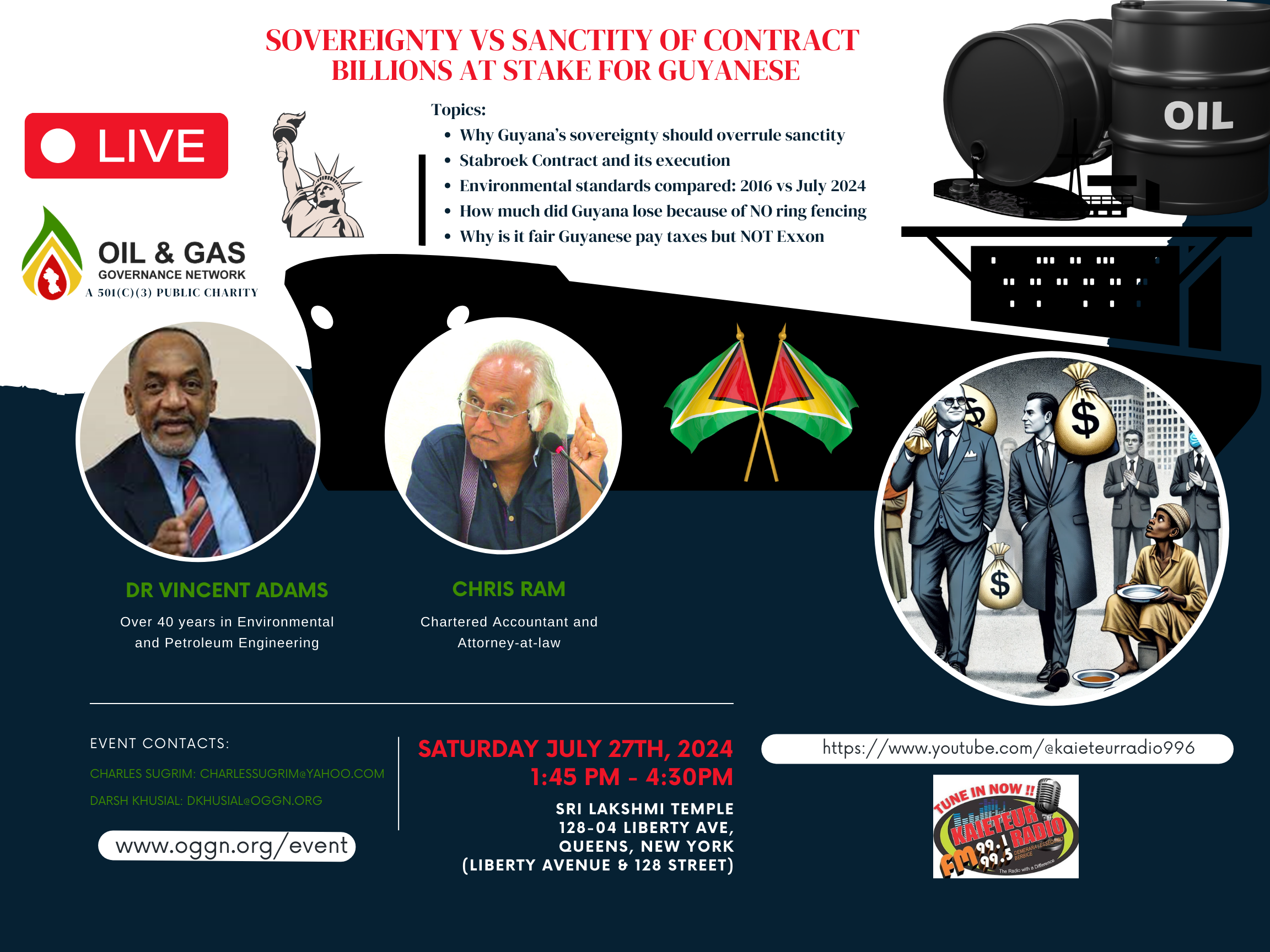
Opinion
How can we trust that the oil cost would be allocated fairly?
The oil contract contains a loophole that may tempt the oil companies to get around the 14.25% of revenues minimum limit cited by some analysts. The only guarantee is the 2% royalty, but the 50%/50% profit share can be exploited such that Guyana’s average take is less than 14.25% in earlier periods. On April 1st, 2018…
Political cooperation is necessary for escaping the natural resource curse – Part 7
We explored the idea of the resource curse in six previous columns before analysing the cost aspects of the oil and gas contract. We took a break from this topic in the previous three successive essays. Last week’s essay looked at how recurring costs could have an interesting effect on the long-term average cost oil…
The crafty contract and Guyana’s implicit and explicit earnings
By now many Guyanese would have heard about the 14.25% effective royalty, which combines the 2% actual royalty enshrined in the contract, the 50-50% profit share and the 75% cost-recovery cap. According to Article 11 of the Petroleum Agreement between the Guyana government and ExxonMobil subsidiaries, the cap on cost recovery is monthly. This…
Proposed oil production should be put on hold–Int’l Lawyer
…Says this is necessary until Govt. can show what an oil spill could cost Guyana Article 149 J of the Constitution mandates that the Government shall protect the environment for the benefit of present and future generations. It is expected to do this through reasonable legislative and other measures designed to prevent pollution and environmental…
Guyanese campaigners mount legal challenge against three oil giants
Crowdfunded case claims offshore oil licences were granted illegally by the Guyanese government Offshore drilling off the coast of Guyana is being seen as the most sought after prospect in the world for oil companies. Analysts predict offshore drilling could provide 350,000 to 400,000 barrels a day by 2026. Three major oil companies preparing to drill off…
We need leaders who have the strength to insist on the renegotiation of the Oil Agreement
The recent dismissals of Professor David Hinds and Mr Lincoln Lewis have not displaced the foremost news event in Guyana, this being the giveaway of Guyana’s oil patrimony. What the terminations have highlighted is how politicians attempt to justify indefensible acts, by using dishonourable, mendacious or facetious statements. The utterings by politicians to logically define…
Guyana should not auction remaining oil blocks – Oil Attorney
A local attorney who has extensive experience working with many oil companies is cautioning the current Government against making rash decisions when it comes to the remaining oil blocks offshore Guyana. This attorney, Melinda Janki, has said there should be no auction of the remaining blocks. Janki, who worked as an in-legal counsel for British…
The half-good oil contract may or may not bring chicken feed money
The previous column critically analysed the cost components of the production sharing agreement with ExxonMobil. We noted that the legal aspects did not cover all the possible cost scenarios, which is crucial for PSA-type contracts. In keeping with the theme of this series of essays, I argue the legal protection against cost uncertainty does not…
Exxon’s uncapped delivery costs will significantly affect Guyana’s 2% royalty
Is there any clause in the ExxonMobil Agreement that is in Guyana’s favour? In the eyes of the fledgling coalition Government, the “generous” two percent royalty and a 50/50 split of profit oil was one. But a closer look by local commentators shows that even this is a poisoned chalice. In his continued analysis of…






